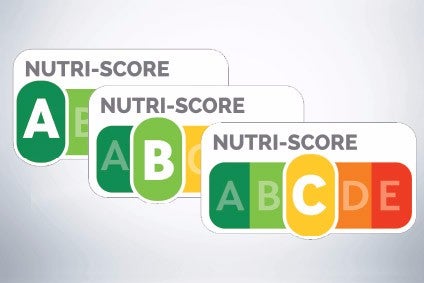
France has sought to increase food manufacturers’ use of Nutri-Score nutrition labels – but companies can swerve the new rules.
In the wake of new legislation, the labels are to become mandatory on advertising in France.

Discover B2B Marketing That Performs
Combine business intelligence and editorial excellence to reach engaged professionals across 36 leading media platforms.
In 2017, France introduced Nutri-Score, a voluntary colour-code system on nutritional quality, to enable consumers to know at a glance a food product’s health rating on a scale running from A to E.
But the fact manufacturers have been left the choice of whether or not to display the information has limited the logo’s adoption.
Effective 1 January 2021, food ads on the Internet, TV and radio “broadcast from French territory and received in this territory,” will be obliged to include Nutri-Score information, the parliamentary bill, seen by just-food underlined.
However, advertisers can avoid the rules by paying a fee to France’s state agency for public health. The fee is 5% of the price paid for the adverts, before discounts and VAT.
The parliamentary bill had also originally contained articles to impose lower acceptable levels of salt, sugar and fat in food, a ban on certain additives and limits on advertising products popular with children, which, along with the Nutri-Score advertising measure, were tabled by the La France Insoumise (LFI) opposition party.

US Tariffs are shifting - will you react or anticipate?
Don’t let policy changes catch you off guard. Stay proactive with real-time data and expert analysis.
By GlobalDataBut these were absent in the final text presented by the LREM party, which holds a large majority in the French Assembly.
However, the new law does oblige food firms to report nutritional labelling data on their products to a branch of France’s state food safety agency, ANSES.
Based on the findings, ANSES will submit an annual report to parliament on the changes in the nutritional quality of foods, with the agency setting targets to cut salt, sugar and unsaturated fat content in the most popular products, which manufacturers would be recommended to adhere to, albeit on a voluntary basis.
Provision is also made for the introduction of nutrition classes in schools, even though this would be optional and take place as part of extra-curricular activities.





